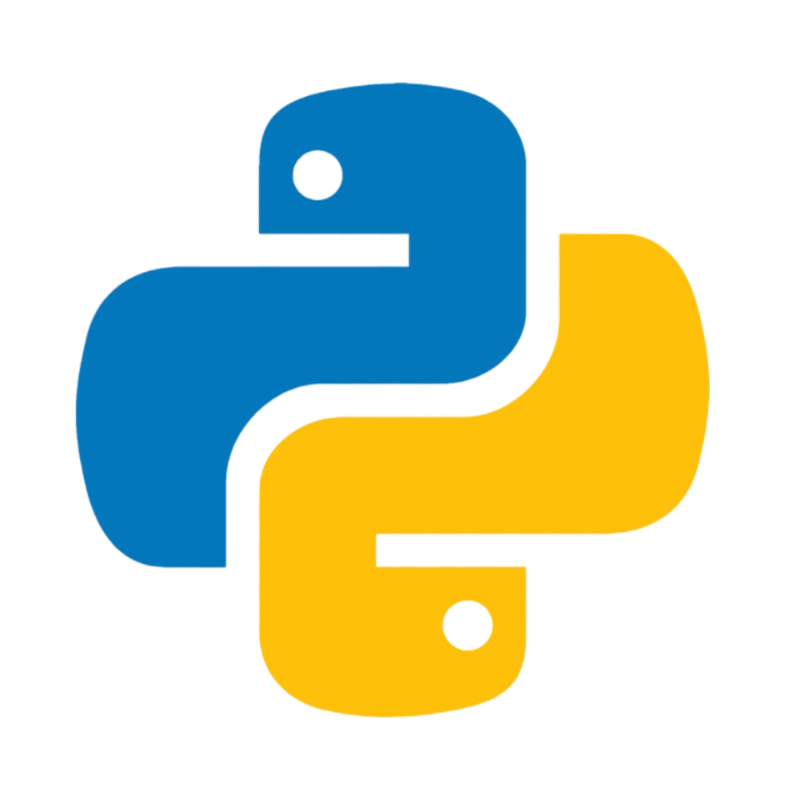
Python
Python was developed by Guido van Rossum, a Dutch programmer, in the late 1980s. He started working on Python in December 1989 during his time at Centrum Wiskunde & Informatica (CWI) in the Netherlands and officially released it in 1991.
-

Python Basic
Learn the core fundamentals of Python—setting up the environment, writing scripts, understanding syntax, and using indentation and comments for clean, readable code. These basics form the foundation f...
-

Python Data Types
Explore Python’s built-in data types including numeric, string, boolean, and collection types. Learn how data is represented, stored, and manipulated in different forms such as integers, floats, strin...
-

Logic & Flow Control
This module focuses on controlling the flow of a Python program through logical decision-making and iteration. You will learn how to use conditional statements like if, elif, and else to build logic p...
-

Functions & Reusability
Learn how to write clean, modular, and reusable code using functions. Define logic blocks with the def keyword, pass arguments, use default values, and return results. Understand how variable scope wo...
-

Error Handling
This section focuses on writing programs that don’t just work — they work reliably, even when something goes wrong. You'll explore how to gracefully catch and manage unexpected errors, prevent crashes...
Hacking Windows is often daunting. Grasp the fundamentals of core Windows concepts.
A learning pathway is made up of modules, and a module is made of bite-sized rooms (think of a room like a mini security lab).
